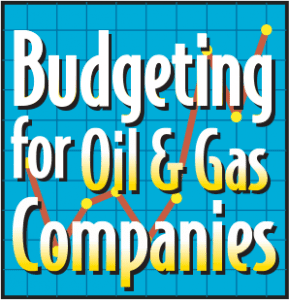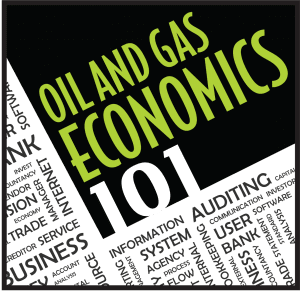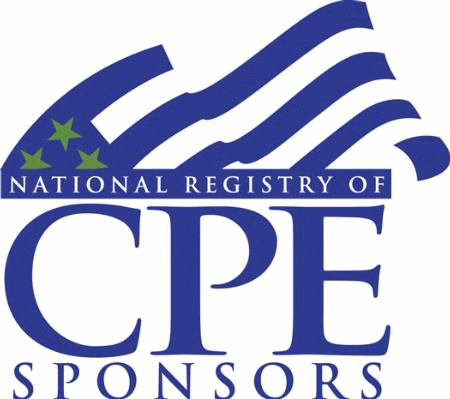Budgeting for Oil & Gas Companies
SEMINAR DETAILS
CPE: Recommended 7.5 hours
Program Level: Basic to Intermediate
Field of Study: Specialized Knowledge and Applications
Prerequisites: None. No advance preparation needed.
Instructional Delivery Method: Group Live
Cost: $945
Schedule: 8am – 4pm. Lunch is provided at 12pm.
Select a date to register!
Brief:
This course is designed to provide employees with a bottoms-up understanding on how to forecast the financial statements for an oil and gas producer. Students are guided step by step on how to model the Income Statement, Balance Sheet, and Cash Flow Statement on a monthly basis. Students will learn the best practices for forecasting:
Revenue
Operating Expenses
Depreciation, Depletion and Accretion
General and Administrative Expenses
Taxes
Cash
Capital Expenditures
Debt
Operating / Investing / Financing Cash Flow
Who should attend:
This course is geared for employees who want to learn how an oil and gas company builds its budget, from the technical professional who generates production forecasts to the analyst who calculates tax rates. No accounting background is required, therefore it is suitable for professionals and analysts in engineering, geology, accounting, treasury, investor relations, marketing, land, legal, HR, IT, etc etc.
Agenda
AGENDA: BUDGETING FOR OIL AND GAS COMPANIES
SECTION 1 – Morning
- Why Build a Budget?
- Goal Setting / Accountability
- Earnings Calls / Investor Presentations
- Bank Covenants
- Board Meetings
- Budgeting Best Practices
- Communicate – All you Wanna do is Talk Talk
- Actualize – Is it an Adjective, a Noun, a Verb??
- Fundamentals of Financial Statements
- Income Statement – AKA Profit & Loss
- Balance Sheet – It’s the Water in a Bathtub Combined with the Water Bill
- Cash Flow Statement – Exactly how much $ do I have in my Checking Account?
- Cash vs Non-Cash – Let the Battle Begin
- How to Forecast the Income Statement
- Production, Prices, Revenue – It’s just Physical
- Hedge Settlements – It’s just Financial
- Operating Expenses – The Day-to-Day Expenses
- Depreciation, Depletion, and Accretion – AKA DD&A
- General & Administrative Expenses – AKA Overhead
- Current and Deferred Taxes – The Tax Man Cometh
- Net Income – The Bottom Line, Sort Of
SECTION 2 – Afternoon
- How to Forecast Assets
- Cash – Keep it Simple, and Low
- Capital Expenditures – The Big Ticket Items
- Accumulated Depreciation, Depletion, and Accretion – AKA Accumulated DD&A
- Accounts Receivable – Money that’s Coming In
- How to Forecast Liabilities and Equity
- Accounts Payable – Money that’s Going Out
- Bank Debt and Public Debt – To Plug or Not to Plug
- Retained Earnings – Back to the Bottom Line
- How to Forecast the Cash Flow Statement
- Net Income – Begin with the Bottom Line
- Non-Cash Items – Give them the Boot
- Working Capital – Both a Source and a Use of Cash
- Operating Cash Flow – The Sum of A through C
- Investing Cash Flow – AKA Capital Expenditures and Other Stuff
- Financing Cash Flow – AKA Bank Debt and Other Stuff
- Increase / Decrease in Cash – The Sum of D through F
- Pulling it All Together / Closing Remarks
This seminar is also available as an in-house seminar brought to your office. Contact us for more details.
Not Convinced?
See what others had to say about Energy Seminars:
This was one of the better training classes I have attended in the 25 years I have been working. The instructor was very knowledgeable and made the content interesting!!
ALL new hires should take this course first.
Excellent foundation in the basics presented in understandable, plain English with helpful anecdotes and stories.
Oil & Gas Economics
Keep your education going – Oil & Gas Economics is designed to train employees on the basic concepts of finance, economics, and financial statements. There are multiple examples which are specific to oil and gas companies but could be applied to all industries.




